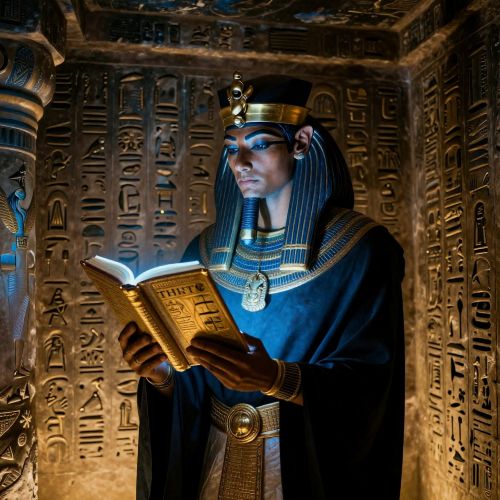Curses & Condemnations
In every mythology, the divine is not only a source of light and mercy but also of justice and retribution. Curses & Condemnations embody this darker, yet essential, side of divinity — moments when gods, spirits, or fate itself intervene to restore balance. They remind mortals that every action carries consequence, and even divine patience has limits. From the wrath of Greek deities to the karmic punishments of Hindu legends, the theme of divine retribution echoes across time, shaping how humanity understands sin, pride, and destiny.
A curse is the direct expression of divine displeasure or wounded morality. It is a powerful form of speech or will that alters fate, often uttered by gods, saints, or beings endowed with spiritual authority. In myth, curses can afflict individuals, families, or even entire kingdoms. The curse of Medusa, the malediction of King Oedipus, or the exile of Kaikeyi’s son in the Ramayana all reflect the eternal warning that arrogance and betrayal invite divine response. In many traditions, a curse does not merely punish—it educates. It drives transformation, forcing the cursed to confront their flaws and seek redemption.
Condemnations, however, are more absolute. While a curse may be reversible through penance or grace, a condemnation represents final judgment — the divine decree that defines the soul’s fate. Condemnations appear in every major faith: in Christianity, the condemned are banished from paradise; in Hinduism and Buddhism, they are reborn into cycles of suffering; in ancient Egyptian belief, the condemned soul is devoured by Ammit after failing the judgment of Osiris. These divine verdicts form the moral architecture of myth, illustrating that even in the realm of gods, order must be maintained.
The difference between Curses & Condemnations lies in their intent and permanence. A curse is a divine reaction to a specific transgression, meant to correct imbalance or teach humility. A condemnation is divine closure — the sealing of destiny after all chances of redemption have been exhausted. Yet both reveal the same truth: that morality is not a human invention but a universal law, upheld by forces greater than ourselves.
Across cultures, Curses & Condemnations serve as cautionary tales. They remind rulers to rule justly, lovers to remain faithful, and seekers to stay humble before the divine. Even today, echoes of these beliefs survive in phrases like “bad karma,” “divine wrath,” or “ancestral curse.” They symbolize our enduring belief that unseen forces still observe our choices, rewarding virtue and punishing vice.
Ultimately, Curses & Condemnations represent divine justice in motion. They are the universe’s response to imbalance, ensuring that moral order prevails over chaos. For every boon or blessing that uplifts, there is a curse or condemnation that restrains. Together, they sustain the cosmic equilibrium — the eternal rhythm between mercy and justice, light and shadow, creation and consequence.








